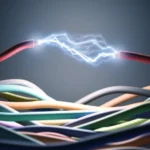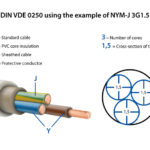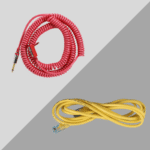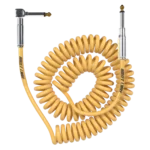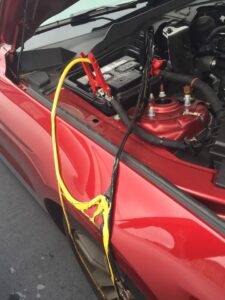
why did my jumper cables melt
If you’ve ever asked yourself, “why did my jumper cables melt?”, you're not alone. Jumper cables are essential emergency tools, but when used incorrectly, they can overheat, smoke, or even melt—posing serious safety risks. This article explores the most common reasons jumper cables melt, how to avoid this dangerous situation, and what you should do if it happens.
What Causes Jumper Cables to Melt?
1. Incorrect Connection (Reversed Polarity)
One of the most common reasons jumper cables melt is reversed polarity—when the positive and negative clamps are connected incorrectly. This creates a short circuit, generating intense heat in seconds and melting the cable insulation. Not only does this damage the cables, but it can also harm both car batteries and electronics.
Tip: Always double-check the battery terminals:
Red = Positive (+)
Black = Negative (–)
2. Low-Quality or Underrated Cables
Not all jumper cables are created equal. If you're using cheap, thin, or low-gauge cables, they might not be capable of handling the current needed to start a car—especially a truck or SUV. Overloading weak cables can cause them to overheat and melt.
Tip: Use heavy-duty cables with at least 4-gauge or lower (the lower the number, the thicker the cable). For trucks or cold climates, consider 2-gauge or even 1-gauge cables.
3. Extended Cranking Time
If you keep the ignition turned for too long (typically more than 10 seconds at a time), jumper cables can begin to overheat from prolonged current flow. The heat buildup can melt the insulation or the cable itself.
Tip: Try in short bursts. Let the cables rest between attempts to avoid overheating.
4. Loose or Poor Connections
A loose clamp or corroded battery terminal causes high resistance, which turns electricity into heat. This resistance can cause jumper cables to get extremely hot, even if they are high-quality.
Tip: Always ensure the clamps are tightly secured and clean off any corrosion before jumping.
5. Faulty Battery or Electrical System
If the car’s battery is damaged or the internal circuits are shorted, it can draw excessive current. Your cables will act as the bottleneck, possibly leading to melting, burning smells, or even sparks.
Tip: If your battery is bulging, leaking, or producing odd smells, don’t attempt to jump it—replace it.
Signs Your Jumper Cables Are About to Melt
Cable insulation feels hot to the touch
Burning smell or visible smoke
Discoloration or soft spots on the cable
Sparking when connecting or disconnecting
Stop using the cables immediately if you notice any of these signs.
How to Prevent Jumper Cable Melting
Use high-quality, properly rated cables
Double-check polarity before connecting
Avoid long crank times—use 10-second intervals
Secure all clamps tightly
Inspect both batteries before use
What to Do If Your Jumper Cables Melted
If your cables melted:
Disconnect them immediately, but be cautious—they may be hot or sparking.
Do not reuse the cables—they are likely damaged and unsafe.
Inspect your car battery and charging system for damage.
Replace the cables with higher-quality, heavy-gauge options.
Conclusion: Why Did My Jumper Cables Melt?
To sum it up, jumper cables melt due to excessive heat caused by incorrect usage, poor-quality materials, or electrical faults. Understanding how jumper cables work and using them correctly can prevent accidents and protect your vehicle’s electrical system.
So next time you're stuck with a dead battery, remember that how you use your jumper cables matters just as much as having them in the first place.
FAQs
Q: Can jumper cables catch fire?
Yes, in extreme cases, especially if they're used incorrectly or are of poor quality.
Q: What gauge jumper cable should I use to prevent overheating?
Use 4-gauge or thicker for most cars. For trucks, go with 2-gauge or even 1-gauge.
Q: Are melted jumper cables repairable?
No. Once the insulation melts, the cable becomes unsafe. Replace them immediately.
Don’t gamble with safety—invest in the right cables and follow proper procedures. If you're searching for answers to “why did my jumper cables melt”, now you know the key causes and how to prevent it from happening again.

